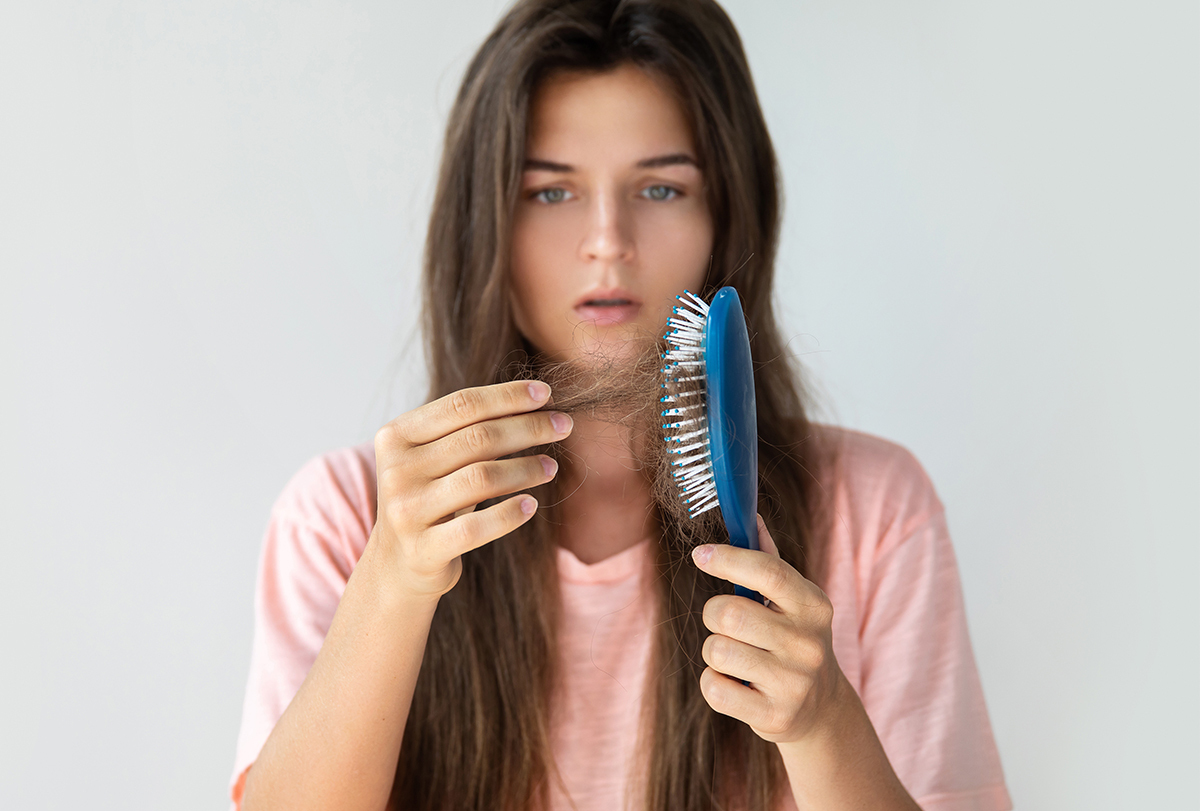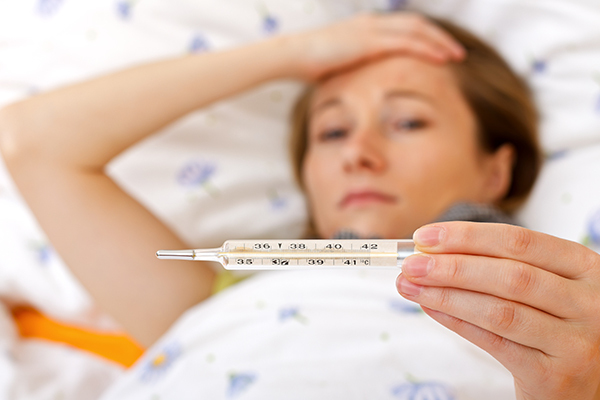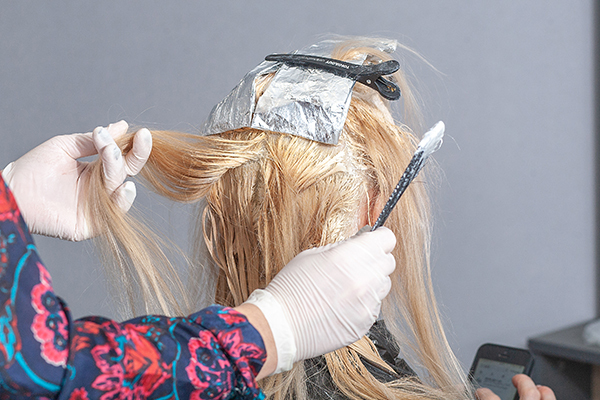Your hair is an important aspect of your overall appearance and therefore deserves proper grooming and care.

The part of the hair that grows outside the scalp is known as the shaft, which is covered by a protective layer called the cuticle. The roots of the hair are buried within the hair follicle, a tunnel-shaped structure inside the scalp.
Many factors can damage the cuticle, hair roots, and hair follicles and make your hair dry, dull, and brittle. The weaker the hair, the more likely it is to break or fall out of the follicle.
Hair weakening paves the way for excessive hair loss that can ultimately result in bald patches or alopecia, which may not be reversible. Thus, it is important to identify the major factors responsible for this kind of hair damage so you can proactively avoid them.
This article will help you do the same by listing the most common causes of hair weakening.
Causes of Weak Hair
Here are some common causes of hair weakening.
1. Thyroid disorders
Thyroid disorders occur when your thyroid gland produces either an insufficient or increased amount of thyroid hormones, known as hypothyroidism or hyperthyroidism, (1) respectively. Both these conditions have various side effects, including dry or weak hair.
Brittle, lifeless hair eventually leads to hair loss throughout the scalp and reduced hair volume. (2) Treating the underlying thyroid diseases usually reverses the hair loss and helps regrow hair. This process can occur over a couple of months or may take up to six months depending on the severity of your condition.
2. Hormonal imbalance
Polycystic ovarian syndrome (PCOS) is a disorder that causes an increase in androgen hormones in the body. (3) This leads to ovarian cysts, irregular menstrual cycles, acne, and hair loss.
Hair loss caused by PCOS is very common and there are a number of ways to treat it.
3. Fever

Many people report an increase in hair loss after recovering from CoVID-19. This is because suffering from any major infection causes a fever response in the body. (4)
This may interrupt your natural hair growth cycle and may push more hair strands into the shedding phase. Thus, most people notice an increase in hair shedding a couple of months after recovery.
4. Surgery
Weight loss or bariatric surgeries often lead to hair loss in the long run. The hair shedding may begin immediately or a few months after the procedure. This phenomenon occurs because of the large amount of weight lost and also post-surgery stress.
Improper nutrition and nutrient loss may also lead to hair loss after surgery. (5) Essential nutrients such as protein, potassium, phosphorus, vitamin D, vitamin B6, and zinc are needed for normal hair growth and strength. Make sure to consume a diet rich in these nutrients to prevent post-surgery hair loss.
5. Pregnancy
During pregnancy, your body experiences a rush of hormones that forces more hair into the resting phase. After delivery, this hair enters the shedding phase and starts falling out. Your hair may continue to fall out for a couple of months after giving birth. (6)
This condition is temporary and will go away on its own. However, sometimes mineral deficiencies during pregnancy may also lead to hair loss.
6. Lactation
Breastfeeding is another common cause of hair loss in postpartum women. It is completely normal to experience some degree of hair loss after giving birth. (7) You may continue to lose some amount of hair for up to a year or as long as you breastfeed.
7. Environmental damage

Daily exposure to the sun’s UV radiation as well as airborne pollutants that include various chemical toxins, smoke, dirt, and dust can wreak havoc on your hair.
UV radiation and pollutants release free radicals, which are unstable reactive molecules that damage the hair shaft, making it dry and brittle. (8) Plus, these free radicals trickle inside the hair follicles to weaken the very foundation of the hair and hamper its growth.
8. Poor nutrition
Your body derives its nourishment from the foods that you eat, and so does your hair. Since hair is mainly composed of protein, you need to consume enough of this macronutrient to keep them strong and healthy.
Eating a diet that runs heavy on sugar and unhealthy fats but low in protein and other essential nutrients will impair the quality of your hair by rendering them weak, dull, and dry. (9)
Your body needs protein to build, grow, and repair your hair. Plus, a higher nutritional intake will stimulate hair follicle activity to make your hair grow faster.
9. Chemical hair treatments

Each hair strand is composed of three concentric layers: the cuticle, which is the outermost protective cover made up of dead cells; the cortex, which contains most of the keratin fibers and melanin, which give strength and color to the hair, respectively; (10) and finally, the medulla, which is the thinnest innermost layer that contains the hair marrow (usually only present in the thicker strands).
Procedures such as rebonding, hair smoothening, and keratin treatments involve the use of harsh chemicals that dissolve the cuticle to penetrate deep into the cortex and thereby weaken the hair structure from its very core. (11)
10. Hair grooming mistakes
Brushing or combing your hair too vigorously or when they are soaking wet weakens them from the roots, causing undue hair shedding. Similarly, tying your hair too tightly or in the same style repeatedly exerts a lot of strain on the hair roots, making them weak over time.
Moreover, excessive use of hairstyling tools such as hair dryers, curlers, and straighteners can greatly damage your hair shafts and hair roots over time due to the intense heat exposure. This was corroborated by a 2020 study published in Indian Dermatology Online Journal. (12)
ALSO READ: 14 Bad Habits That Are Damaging Your Hair
Final Word
Unlike your body, your hair is exposed to environmental irritants on a daily basis. This, coupled with poor nutrition, an unhealthy lifestyle, and the use of wrong hair care practices/products, can greatly damage the structural integrity of your hair over time, making it weak and therefore prone to breakage or shedding.
This kind of damage causes hair thinning and even bald patches, which can be quite difficult to treat. So, it is better to address hair weakening as early as possible to avoid such complications later.
- Was this article helpful?
- YES, THANKS!NOT REALLY


